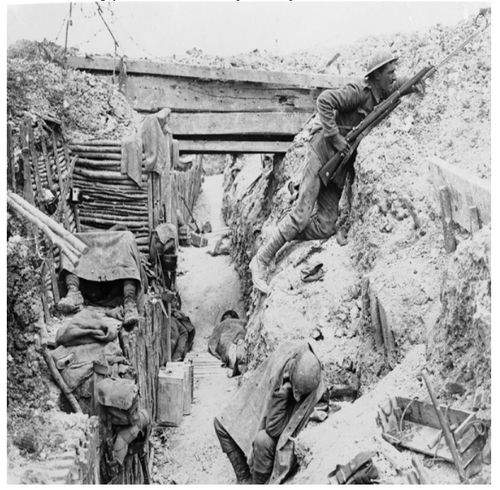JF Ptak Science Books Quick Post
“What hath night to do with sleep?” John Milton, Paradise Lost
Sleeping during front line duty in WWI was a mixed affair, at best--there could be weeks of tedium (even in the Spring) while a soldier's front line tour extended over four to eight weeks (with about the same amount of time in the other lines of battlefield defense), followed by days or weeks of firing and fighting. In the bad times sleep would come when available, and convenience didn't necessarily have anything to do with it, as we can tell in this photograph. Here the soldiers are crammed into any little indentation in the walls of the trench, any little bit that would keep them from being underfoot should anyone need to walk the trench line. It was not only the sound of battle and the struggle to stay alive--sleep was assaulted by many other things, even in times of the space-in-between-the-fighting: there was a significant rat issue, there was a potential cascading problem of what to do with human waste, bugs, the wet, the cold (and the wet and the cold), the heat, stench, humidity, and then just general discomfort.
Needless to say that in general, sleep was difficult on the front.
Source: Imperial War Museum. “Soldiers of 'A' Company, 11th Battalion, the Cheshire Regiment, occupy a captured German trench. Q 3990 This photograph shows an infantryman on sentry duty, whilst some of his comrades snatch a few moments of sleep behind him. They are in what was previously a German trench at Ovillers-la-Boisselle on the Somme, July 1916.”




Comments